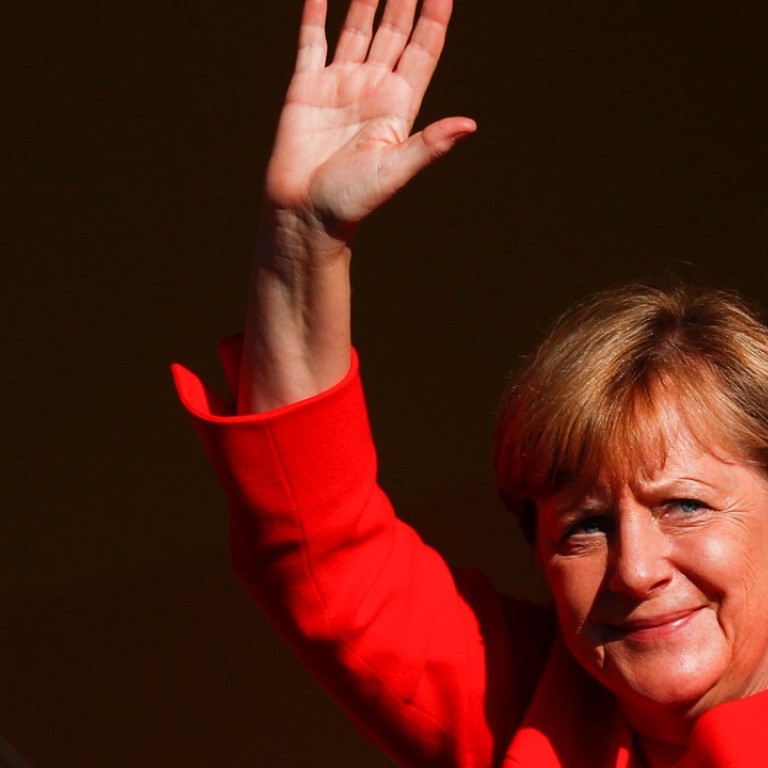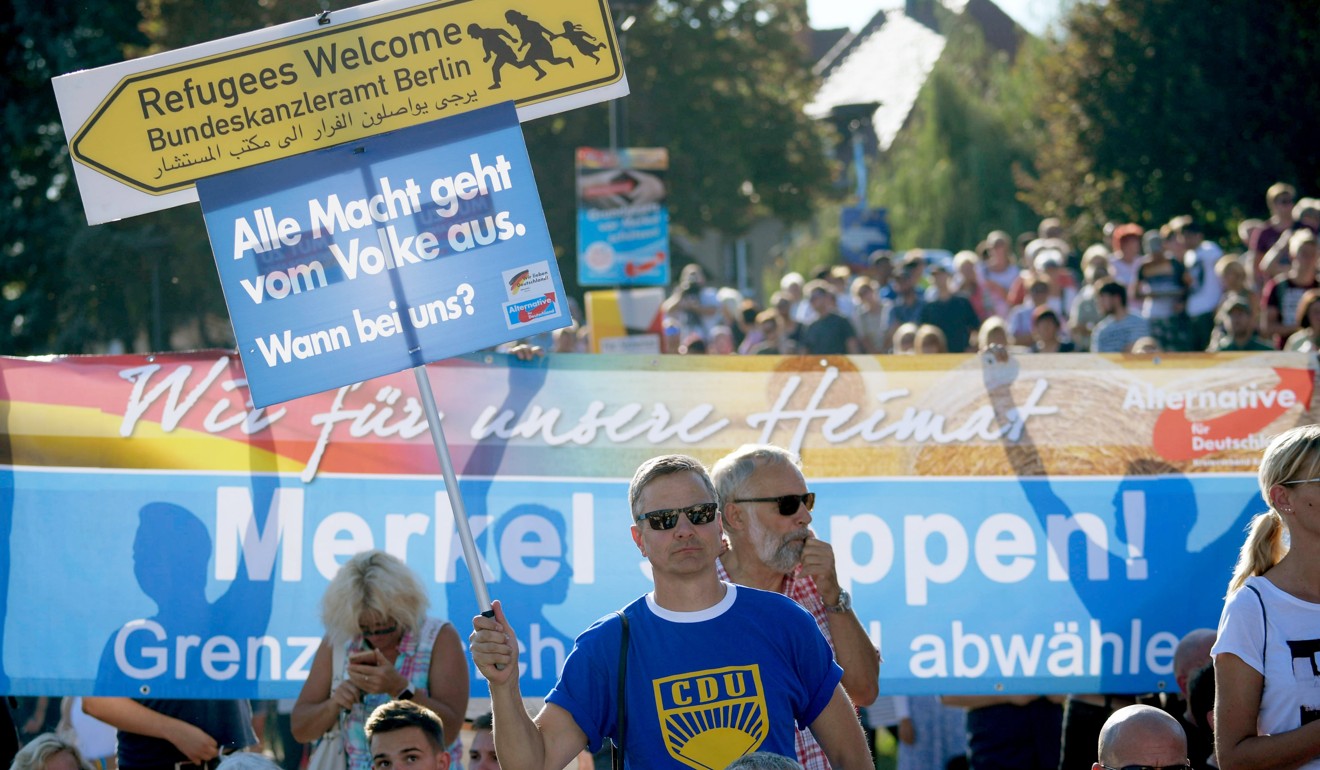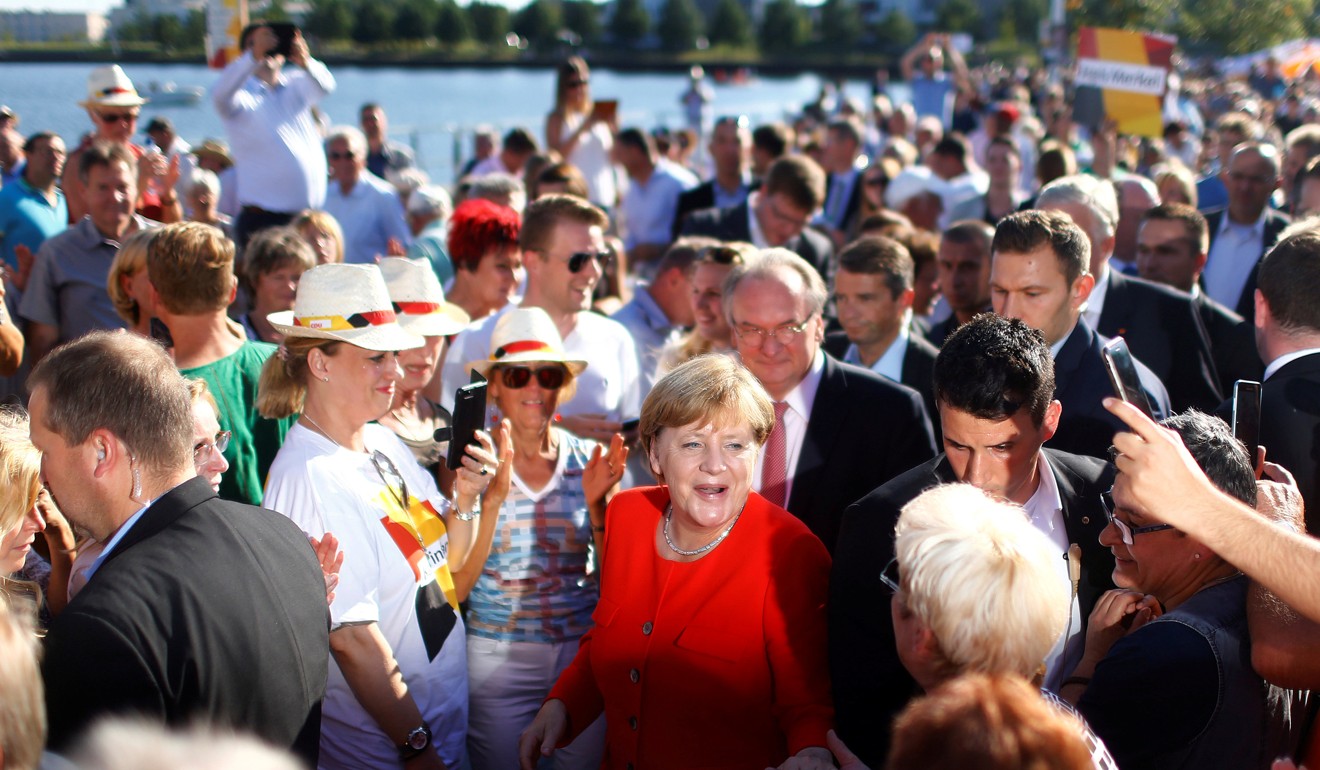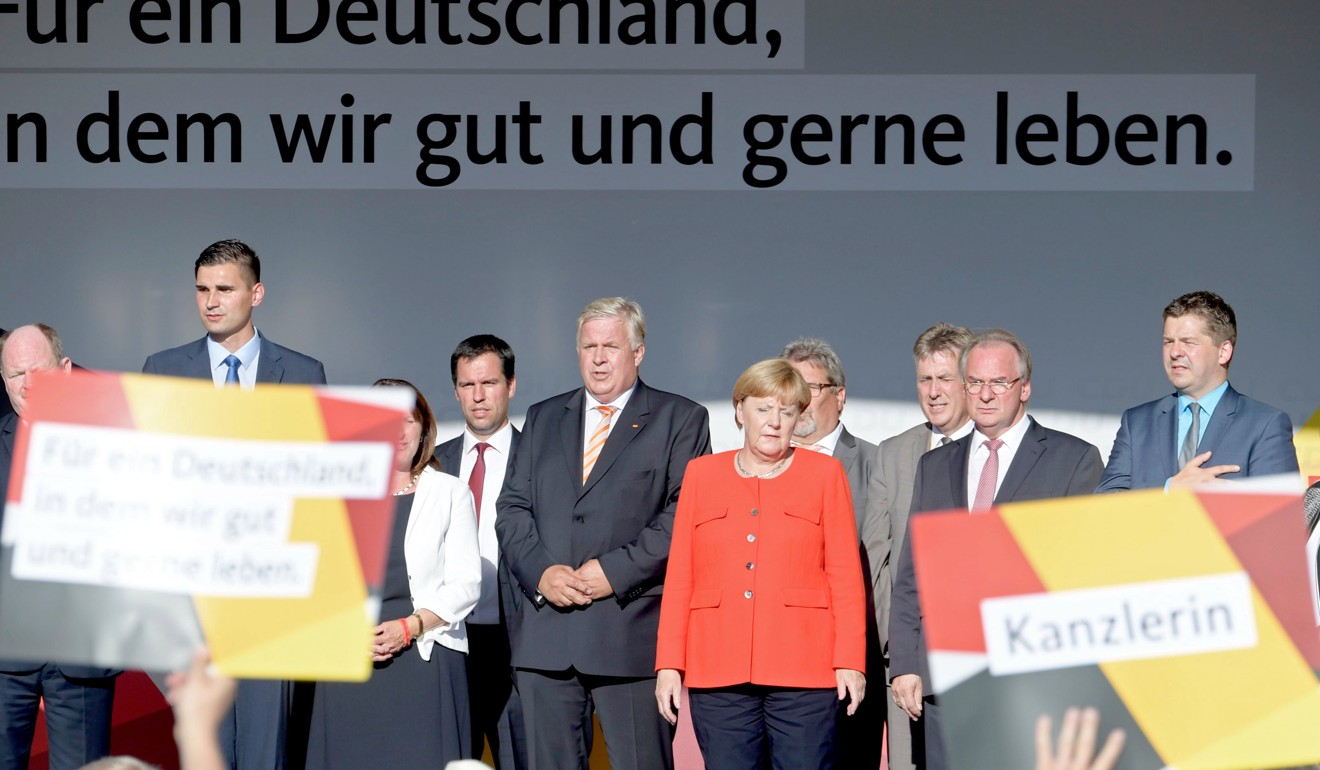
Merkel firmly rejects coalition with far right or far left political parties in Germany
German Chancellor Angela Merkel on Tuesday ruled out forming a government coalition after elections with either the far left or the far right.
Supporters of the far-right, anti-immigrant Alternative for Germany (AfD) party jeered her throughout a 30-minute campaign speech in the eastern city of Bitterfeld-Wolfen hours after Merkel declared comments by a top AfD official to be racist.
Merkel, whose conservatives have a double-digit lead over the centre-left Social Democrats (SPD) in polls ahead of the September 24 elections, also ruled out a coalition with Germany’s far-left Left party.
She said the SPD, junior partner in Merkel’s current coalition government, had also ruled out governing with the anti-immigrant AfD, but had not issued any clear statements on whether it would work with the Left party.
“We say clearly: no coalition with the AfD and no coalition with the Left,” Merkel said, underscoring her party’s standard line on potential future governing alliances. “The Social Democrats have been lacking this clarity.”

The chancellor, a Christian Democrat, said she did not think a so-called “Red-Red-Green” coalition of the Social Democrats with the Left and the pro-environment Greens would help advance Germany.
Such a coalition would be one possible alternative to a return of a Merkel-led coalition between her CDU/CSU conservatives and the SPD. There has also been conjecture about a coalition of the conservatives with the pro-business Free Democrats (FDP).
Merkel, expected to win a record-tying fourth term, defended her decision in 2015 to allow in over a million migrants, carrying on her speech despite loud heckling from a group of around 60 protesters, many of whom carried AfD signs.
Some booed, while others shouted “get lost” and chanted “AfD, AfD.” She has faced similar heckling at about a third of her speeches since kicking off the campaign on August 12.

Earlier, Merkel accused one of the AfD’s top officials, Alexander Gauland, of racism for recent remarks that Aydan Ozoguz, the government’s integration minister, should be “dumped” back in her parent’s homeland, Turkey.
Gauland defended his remarks in the Frankfurter Allgemeine Newspaper, saying Ozoguz “had no business being in Germany” given she had said Germany had no culture beyond its language.
Social Democrat Martin Schulz, speaking at a campaign event in the eastern German city of Erfurt, also criticised Gauland’s remarks. He welcomed a move by Thomas Fischer, the former lead judge in Germany’s constitutional court to file a formal complaint against Gauland for “incitement to hatred”.

Founded in 2013 as an anti-euro party, the AfD shifted its focus after the euro zone debt crisis peaked to campaigning against immigration after Merkel’s move in 2015 to open the borders to a flood of migrants, many from the Middle East.
Merkel’s conservatives were on 37 per cent support in the latest poll by the INSA institute released on Tuesday, compared with 24 per cent for the SPD.
The poll showed 10 per cent support for both the Left and the AfD parties, while the Greens were at 6.5 per cent and the FDP on 8 per cent.

